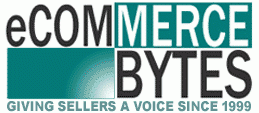
Online shoppers in Colorado will pay a new fee for their purchases beginning July 1, 2022. But similar to state sales-tax laws, the Colorado Retail Delivery fee will require retailers and marketplaces to collect it, even those located out of state.
The new law has caused consternation among online sellers, but those who sell through platforms that are considered to be Marketplace Facilitators and out-of-state sellers who make less than $100,000 in annual sales in Colorado need not worry.
Nevertheless, there will be a cost to sellers who pay payment-processing fees on the total amount of transactions – and those who sell on sites like eBay and Etsy also pay sales tax and commission fees on the total transaction amount.
The new fee collected from Colorado buyers is 27 cents – so on eBay, for example, sellers who pay a 12.9% Final Value fee would pay an extra $3.48 for every 100 transactions or $34 for every 1,000 transactions to Colorado. That’s one state – what happens when others hop on the fee bandwagon?
Colorado set up a page on its website explaining the new fee and explains in part:
“Effective July 1, 2022, Colorado imposes a retail delivery fee on all deliveries by motor vehicle to a location in Colorado with at least one item of tangible personal property subject to state sales or use tax.
“The retailer or marketplace facilitator that collects the sales or use tax on the tangible personal property sold and delivered, including delivery by a third party, is liable to collect and remit the retail delivery fee. Deliveries include when any taxable goods are mailed, shipped, or otherwise delivered by motor vehicle to a purchaser in Colorado.”
While Colorado exploits its sales-tax laws to determine eligibility and presumably help it with enforcement of the new requirement, those it deems responsible for collecting the fee must have a separate “retail delivery fee” account, as explained in the first FAQ, “I have a sales tax account. Do I need to have a retail delivery fee account?” The answer is yes – thus, twice the headache.
In June, eBay responded to sellers who were asking about the new fee on the discussion boards. A moderator posted on June 2, 2022, “Thanks for the question. Our tax team is aware of these changes and have them included in our roadmap. Conveniently for sellers the liability and effort falls on eBay as the retailer and no changes will need to be made on the seller’s end.”
Amazon added information about the fee in a FAQ on its help page:
Will Amazon collect the Colorado retail delivery fee on third-party orders shipped to Colorado?
“Yes, Amazon will collect the Colorado retail delivery fee from a buyer on applicable orders. The fee applies to a buyer’s whole order versus an individual item you sell. Due to this, the fee will not be included in your order or transaction detail pages, or payments reporting. For additional information, go to the Colorado Department of Revenue Retail Delivery Fee website.”
RubyLane sent an email notification to sellers this week similarly stating it would be responsible for collecting the fee, not its sellers. It pointed out that Colorado had introduced the new fee on extremely short notice and noting that the overhead to implement, monitor and comply was considerable. “This is one more situation that Shop Owners don’t have to personally deal with for their sales on Ruby Lane,” it stated.
In a post two days ago, tax-solutions firm Avalara wrote that although the law establishing the fee was enacted in 2021, the Colorado Department of Revenue didn’t issue draft guidance until May 2022 – and final guidance may not be released for another six to eight weeks, it reported. Nevertheless, the Colorado Department of Revenue will begin collecting the fee July 1.





Let’s all protest this by only selling digital items. Colorado can go to hell!
Many people like to protest these days. It is time the protest is about the taxation of everything and the governments wasteful spending. The federal debt interest payments for 2022 is now over $437 billion and is going higher every second. That is just the interest payment and not paying down the debt. History will repeat itself one day.
“. . . Those who sell through platforms that are considered to be Marketplace Facilitators and out-of-state sellers who make less than $100,000 in annual sales in Colorado need not worry.”
I honestly do not know how to respond to that statement. Does the person who wrote it actually BELIEVE it? OF COURSE these sellers certainly are going to worry!!!!!!!!!!!! They may not have to collect and remit the fee personally, but you bet they are going to be HURT because their Marketplace Facilitator will pass along not only the 27 cents but the costs of what will be a MASSIVE expense for them to implement having to collect and remit the fee !!!! And those under-100K individuals may experience fewer customers, who simply can’t or won’t pay additional costs for shopping online.
The ONLY good thing about this horrific end run is that it does reward local shoppers who actually go to stores to make purchases instead of buying online, so it is helping Mom and Pop local in-person businesses. Not very much at all, but it is helping.
Great, I already pay hundreds in fees on taxes, won’t be long before other states over tax online sales.
How is Colorado going to determine what parcels are subject to the fee?
How are they going to collect it? -invoice return addresses?
Will this apply to prescriptions?
How will they enforce it?
Seems the bureaucracy needed to run such a program would far exceed the fees generated.
Is this is just a way for Colorado to force ebay, etsy, ruby lane & amazon, walmart?, alibaba? to collect fees on their behalf.
Or am I missing something??
@mbrj201 – Purportedly only TAXABLE purchases will be subject to the 27c. I don’t think most prescriptions are taxable.
You can bet that Marketplace Facilitators are going to comply – and yes, it’s forced on them. The huge additional expense and time they will have to use is definitely not anything that any business wants. They will buckle under because they’re the biggest targets for compliance — if they don’t comply they’ll be the first ones Colorado goes after.
Ahh, the dreaded flat tax! It’s an extra 0.0135% on a $2,000 purchase, but an extra 5.4% on a $5 purchase. The breakdown is similar in terms of the extra fees a seller will get charged – negligible for larger orders, but very significant for cheaper items.
“Deliveries include when any taxable goods are mailed, shipped, or otherwise delivered by motor vehicle to a purchaser in Colorado.”
Can’t wait for them to close the “loophole” for customers using In-Store Pickup.
@51st State- i may be wrong but the way i read this is:
aka- ‘jam it down your throat and let’s see you make a big smile’
while exempting the tax from 99%(?) of marketplace sellers, INDIVIDUALLY, who make less than 100,000 in sales,
(as they claim ‘NOT to worry’, we are not taking it from you….
they will now collect this fee from the MARKETPLACE, which does make >100,000 in sales (at least as a conglomerating individual sellers amounts)
It is an issue for anyone selling on a marketplace that will pay the fee for you. As stated in the article, the amount of sales tax increases with the addition of this fee AND your final value fees/commissions/etc will also increase even though you do not see any additional money coming in from the taxes and fees collected on you behalf. It is a cost increase that no one needs right now. USPS just increased their rates, this fee for sales to Colorado residents is definetly unwelcome.
Everyone using a payment processor and selling online will see a cost increase when tney sell to Colorado. Even if they are not directly colllecting the fee. As to enfocement, that is up to the state of Colorado to figure it out. Will they catch everyone who does not sign up for a sales and use tax account and for the delivery fee account – no. But to those who get caught, it will be a royal pain in the a$$
I live in Colorado. Our lovely democratic governor (polis) is limited by the TABOR amendment from raising taxes, so his solution is to create ‘fees’. We have fees for an ever increasing amount of things…